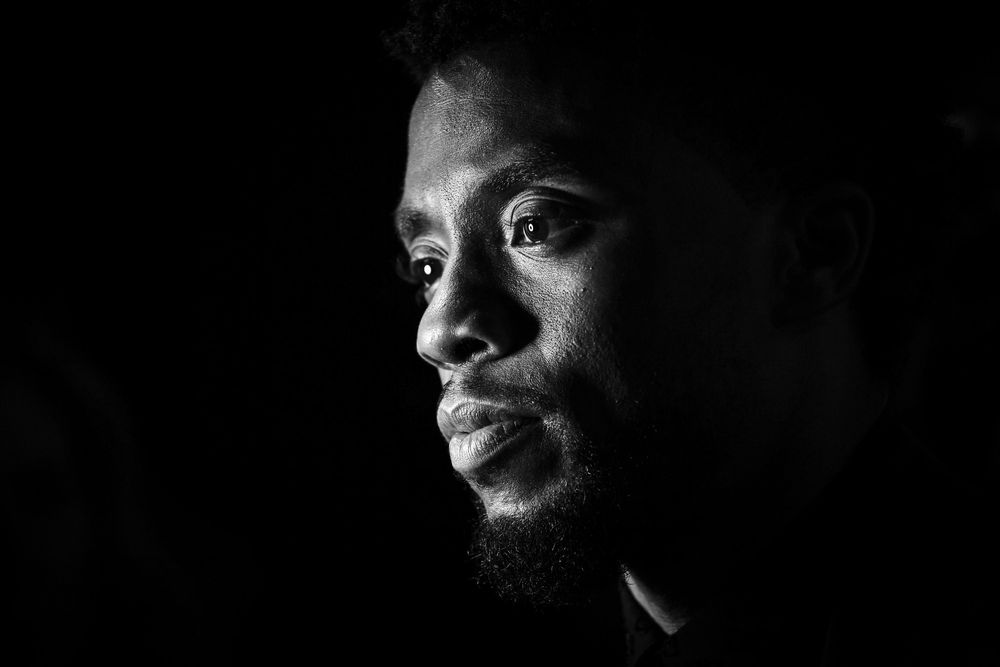“Chadwick Boseman died,” I said. I kept it simple and direct. I didn’t know how else to deliver the news to my sons, ages 12 and 14. How do we explain to our kids that their hero in real life is no more?
It just so happened that my boys were sprawled on the sofa, watching Guardians of the Galaxy, another film in the Marvel Comics universe. We take our love for all things Marvel very seriously in this house. And I had to tell them that the man who had played T’Challa, the Black Panther, in four Marvel films, was gone.
“What happened to him?” my oldest son asked.
“He had colon cancer.”
They both fell silent, wide-eyed and stunned. I sat and waited; I didn’t expect waterworks or theatrics, but I remained close, just in case. My oldest stood up, his face flat, and went to his room to post his thoughts on Instagram — the Generation Z version of attending a memorial service. My younger son took his brother’s space on the couch and zoned out to Guardians.
Unlike me, my sons seem to compartmentalize death. When my heroes passed away, I wept openly; when they lost their own, they were saddened but not shattered.
When I grieved for Miles Davis, Michael Jackson, and Prince, I was grieving for myself, for my connection to that person. The past 48 hours have been different for many of us. After feeling the sharp pain of losing Boseman at such a young age, we immediately had to switch to locating that pain in our children — and trying to heal it as best we could.
My own father was one of the first to tell me about Boseman’s death, minutes after my younger brother had broken the news to me. I could tell my dad had the same thoughts about telling me that I had about telling my boys. I’m nearly 50 years old, and yet my father still wondered: How will I tell my son that his hero is gone?
One friend told me that his 12-year-old daughter barely comprehended the separation between Boseman and his iconic character. She asked her dad how Black Panther could die. He explained that the actor who played Black Panther had passed away. When it seeped in, she cried. After she gathered herself, she told her dad: “Maybe that’s what he came here to do: give us something to work towards, stuff to look forward to. I’m sad that he died, but hopefully, we’ll all try and make something like Wakanda so Black people can be safe.”
That night, her youngest son turned off his lights and got in bed with his sheets pulled over him, as though he could stop the news of the world from getting in.
How we frame Chadwick Boseman’s death as we pass this news on to our children opens us up to the trauma they’re living on a day-to-day basis. My friend John told his eight-year-old son that Boseman had passed and his son immediately asked, “Did the police do it? Did he have coronavirus?” Before he could even process the loss, he needed to know the scale of the tragedy. At eight years old.
Kierna Mayo, a friend of mine who’s a writer and editor like me, got the news from her sons. They stood in her bedroom doorway, stone-faced, and watched for her reaction. She told me that it seemed as if they needed to see how she handled it in order to react themselves. That night, her youngest son turned off his lights and got in bed with his sheets pulled over him, as though he could stop the news of the world from getting in.
I asked my brother, who broke the news to me, what happened when he told my nephew, age 10. He said, like with my sons, there was stoic grief. We thought about what it meant to lose a Black hero. Are they as broken up about it as we are?
My brother reminded me.
“My sons and yours saw the biggest superhero of all,” he said. “An actual Black man in the White House, as the leader of the free world. Truth is, we’re the ones who are hit hardest by this. The big kids.”
He’s onto something there.
